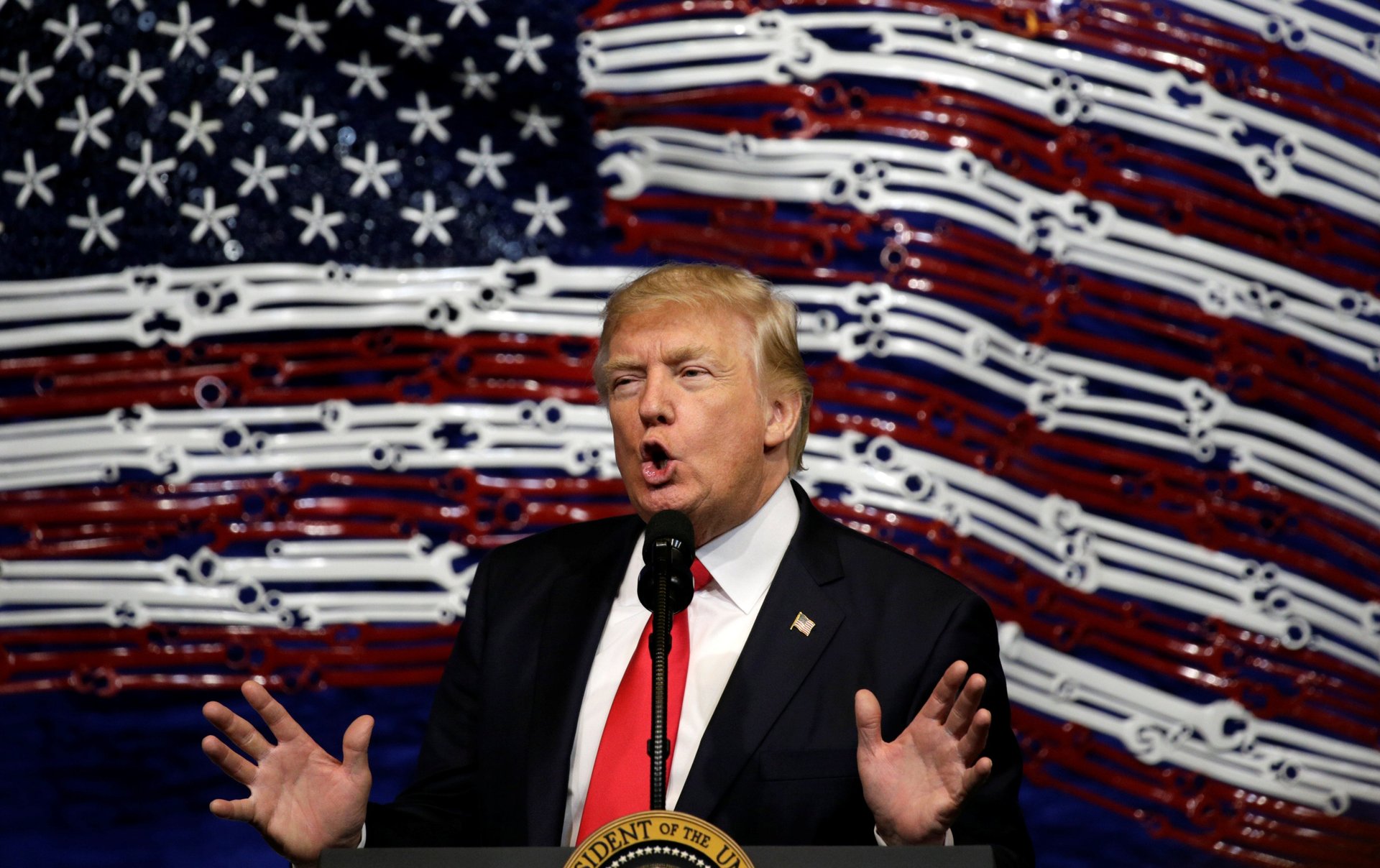The US is jacking up visa fees for Nigerians—based on a 2017 Trump order
Obtaining a US visa is about to become more expensive for Nigerian applicants.


Obtaining a US visa is about to become more expensive for Nigerian applicants.
The Trump administration has imposed a “reciprocity” fee for all approved non-immigrant visa applications by Nigerians. The fee will be charged in addition to visa application fees (usually paid at the start of the application process) for only applicants who are issued visas. The additional reciprocity fees range from $80 to $303 depending on the class of visa. According to the US embassy, the majority of Nigerian applicants currently pay between $160 to $265 for US visitor visas. The new fee regime will take effect from Aug. 29.
The US Embassy in Nigeria says the reciprocity fees are in response to unsuccessful talks with Nigeria’s government to adjust the fees it charges American applicants given “the total cost for a US citizen to obtain a visa to Nigeria is currently higher than the total cost for a Nigerian to obtain a comparable visa to the United States.” As such, the reciprocity fee “is meant to eliminate that cost difference,” as required by US laws.
The push for stricter visa reciprocity terms first came back in 2017 as part of president Trump’s infamous “Muslim ban” executive order. While the entry bans to citizens of seven Muslim-majority countries were subject to intense scrutiny and criticism, the executive order also charged the secretary of State to “review all non-immigrant visa reciprocity agreements” particularly with respect to validity periods and application fees.
“If a country does not treat United States nationals seeking non-immigrant visas in a reciprocal manner, the Secretary of State shall adjust the visa validity period, fee schedule, or other treatment to match the treatment of United States nationals by the foreign country, to the extent practicable,” the executive order read.
The new reciprocity fee is the latest in a string of moves by the Trump administration which targets Nigerians and other Africans which are having an on-ground effect of cultivating fake news and fear.
After reportedly considering visa clampdown measures including issuing visas for shorter validity periods for countries whose nationals have high rates of overstaying visas (Nigerians were the highest ranked African country for US visa overstays in 2018), the US indefinitely suspended its interview waiver process for visa renewals for Nigerian applicants in May.
Sign up to the Quartz Africa Weekly Brief here for news and analysis on African business, tech and innovation in your inbox